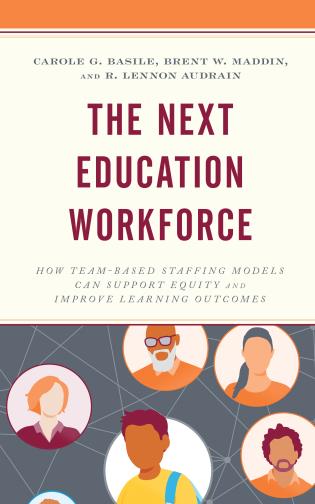Why teams?
When schools are staffed by educator teams, students and teachers thrive.
What’s normal in education is not working for adults or children. Educators are burned out, unsatisfied and are leaving the profession. Fewer people are choosing to become teachers, leading to untenable staffing shortages in U.S. schools. The job of teaching, as it is currently designed, is hard in ways that inhibit success. It’s time for a change.
Arizona State University’s Mary Lou Fulton College for Teaching and Learning Innovation works with school and community partners to update outdated school staffing structures. Across the country, schools are launching Next Education Workforce strategic school staffing models that empower educators to work in teams. The result? Better outcomes for students and experiences for educators.
Improving outcomes and experiences for educators and students
The Next Education Workforce™ is an approach to strategic school staffing that aims to improve outcomes for educators and students. Schools form teams of educators with distributed expertise to replace conventional one-teacher, one-classroom staffing models. When educators work together to support a shared roster of students, they’re able to better meet the needs of students — and enjoy more satisfying, successful and sustainable careers.
Early research on this approach shows promising results. Educators in Next Education Workforce models …
- Have lower turnover rates
- Receive higher evaluation scores
- Are more likely to recommend the teaching profession
- Are more satisfied
- Report better teacher-student interactions
- Collaborate more
- Feel more supported and less lonely
Students served by Next Education Workforce teams …
- Made 1.4 more months of reading growth in 3rd grade than students in traditional models
- Report strong relationships with their teachers
- Collaborate with both their teachers and peers
Strengthening the P–12 education workforce
In this short, 10-minute podcast episode, Brent Maddin, executive director of the Next Education Workforce, shares how team-based school staffing models are one way we can address longstanding challenges in education, including teacher recruitment and retention. He asks, “What if we’ve created an education workforce that smart, caring, thoughtful people can’t really sustain? Can’t really survive in? Aren’t interested in joining in the first place?”
Listen to learn more about how these models can improve experiences for educators and make deeper and personalized learning possible for all students.
Supporting equity and improving learning outcomes
Learn how strategic school staffing models like the Next Education Workforce can support equity and improve learning outcomes in the book “Next Education Workforce: How Team-Based Staffing Models Can Support Equity and Improve Learning Outcomes.”
The book’s authors — Mary Lou Fulton College for Teaching and Learning Innovation Dean Carole G. Basile, Next Education Workforce Executive Director Brent W. Maddin and Research Professor R. Lennon Audrain — make the case that, to achieve more equitable learning outcomes for students and better working conditions for teachers, schools should create teams of educators with distributed expertise that can deliver deeper and more personalized learning experiences for students.
